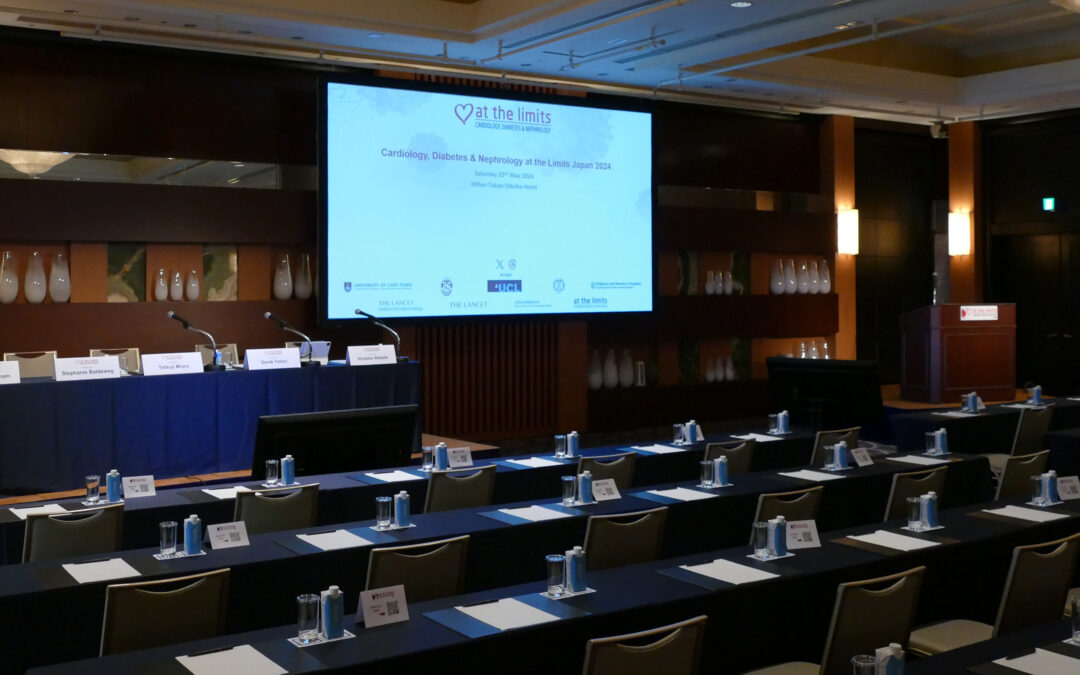So said Mark Twain, the great American author, following rumours about his failing health and his obituary being published in UK newspapers.
Twain’s comments remind me of medical event space during the early days of COVID when live medical education meetings, like all other gatherings, were suddenly curtailed. The face-to-face conference was dead, ‘long live the virtual meeting’ people said (and a number of those people really should have known better).
‘And just think of all the great things we can do with digital platforms’, they went on to say. In the pharma press you could read reams of authoritative opinions from Zooming home-based journalists, espousing about how the digital event would take over the world – how virtual networking was the future of medical collaboration, and how AI would transform the conference experience.
Virtual conferences – the new normal?
And there were many solutions which did fill that gap, and many which appeared to open a new world of opportunity. Events which had previously been live hurriedly pivoted to an online format and the international mega-conferences, which have long been the cash-cow of medical societies and organisations, went virtual as organisers scrambled to find a model to maintain engagement (but just as importantly for them, fill the giant hole which had been blown in their annual cash-flow).
For a time, delegate numbers increased as fast as revenues fell away, and global reach increased too as thousands of home-based HCP and scientists dipped a toe into the world on online conferences and conventions. Why would anyone need to travel to international meetings when they could work from home? why would we possibly want to sit in lecture theatres away from our families when we could have the family cat trudging across the desk and be around for the fun of home schooling?
Time passed.
And the ongoing reality, as we mostly all realise, has been a little different.
We are human after all.
Apart from the various Heads of ‘Digital Engagement’, ‘Future Media’ and ‘Remote Collaborations’ in our community, the vast majority of medical folk became heartily sick of virtual meetings. No matter how hard some people tried to maintain that the future had arrived, the simple lack of human engagement meant that the excitement around the digital experience soon fell away. Our shoulders dropped when we contemplated listening to, or specifically watching, another online presentation. The great global discussions which were promised were limited to a few anodyne questions promoted to the top of delegate polls by simplistic algorithms, and those record visitor numbers soon plummeted as, for every thousand delegates who signed-up for free events, a small handful ever bothered to log-on.
Even the afore-mentioned mega-conferences became mired in a rut of complacency, anxious to mend the balance-sheet, but not wanting to invest in platforms which they knew would soon become obsolete when live meetings resumed.
And what of the people I haven’t mentioned? Sponsors longed for customer engagement, which had been missing for so long and which has never been successfully replaced by virtual events.
In the UK we had a window between early summer and December 2021, before the emergence of the Omicron variant, to re-engage with delegates in the live setting.
During May we tentatively ran a pilot event for Diabetes HCP’s to try to understand how attitudes had changed and how expectations would need to be addressed. Hand sanitising stations were deployed, a small platoon of antiseptic wipes stood to attention, lateral flow tests were stockpiled and perspex screen defences erected.
The audience gathered, masked and socially separated, clearly a little nervous and unsure, as were we all. As the event started, and as the Chair made the opening address a strange thing happened in the room. 18 months of isolation fell away and apart from wearing masks normal life had all but resumed. The delegates happily circulated around the exhibition areas and our sponsors had the first real contact with their customers since the beginning of Spring 2020.
And so it has continued ever since, apart from a few weeks across Christmas when Omicron peaked.
In 2022 we have a full programme of live events scheduled across the globe, from Sao Paulo to Tokyo and many points in-between. With almost all COVID restrictions removed in the UK we can again look forward to experiencing fully functioning live events, with HCPs freely networking and collaborating, and sponsors making the key contacts which are so vital to the development of the Industry/Academia dynamic.
Of course there will still be a place for virtual elements, but as a complement to the live offering, not a replacement. For geographically distanced delegates the virtual experience is an essential service, and to enable us to spread the very highest level of medical education to the widest community in the shortest time only webcasts and video archives can suffice.
But given a choice between a live gathering, with instant access on a one-to-one basis with the world’s leading researchers, clinicians and scientists, or a screen-based experience from the spare room, we all know what the decision would be.
Next month…
The downside of the live meeting is the damage it does to the environment by expanding the carbon footprint as hundreds or thousands of delegates move around the globe. That’s the subject of next month’s blog, with a few examples of how ATL is doing its best to minimise that impact.


